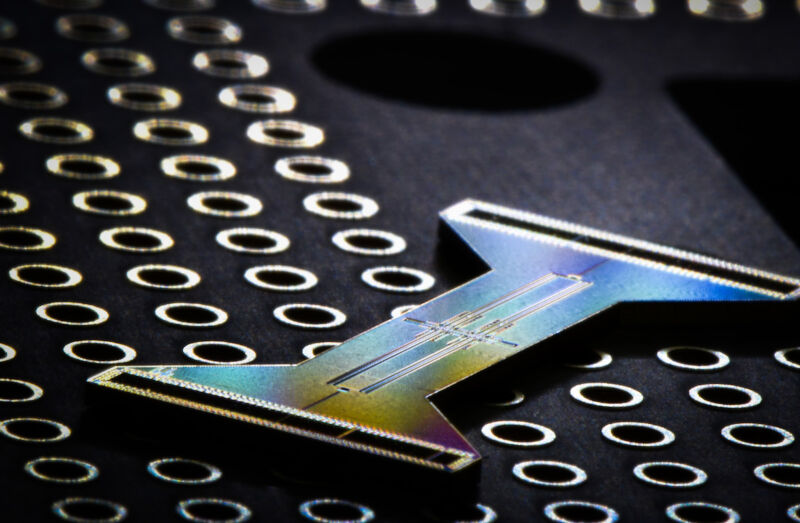
Enlarge / An ion trap, the quantum hardware that was used for this work. (credit: Honeywell)
You can almost hear the indrawn breath from newsrooms around the world. Specialist science journalists have hidden themselves in the bathroom to weep quietly. The cause of such despair? Someone has released a paper containing the word "topology"—something no one knows how to explain, which forces people to resort to metaphors about donuts being forced to become coffee cups, despite there being neither coffee nor donuts on offer.
And although topology is fundamental to the new results, it is also tangential to explaining them (in my view, anyway). So what are those results?
One of the big problems with quantum computers is that they accumulate errors, and the speed at which that happens limits the complexity of the problems they can solve. This new paper shows how to reduce errors, not by engineering but by understanding (and using) the right quantum states and their coupling to generate a system that is naturally more immune to certain types of noise. So grab a coffee and a donut, and let's dive into the noisy world of qubits.
No comments:
Post a Comment